10 games to help kickstart conversations about mental health
Games that educate, inform and provide escapism from a whole range of different genres
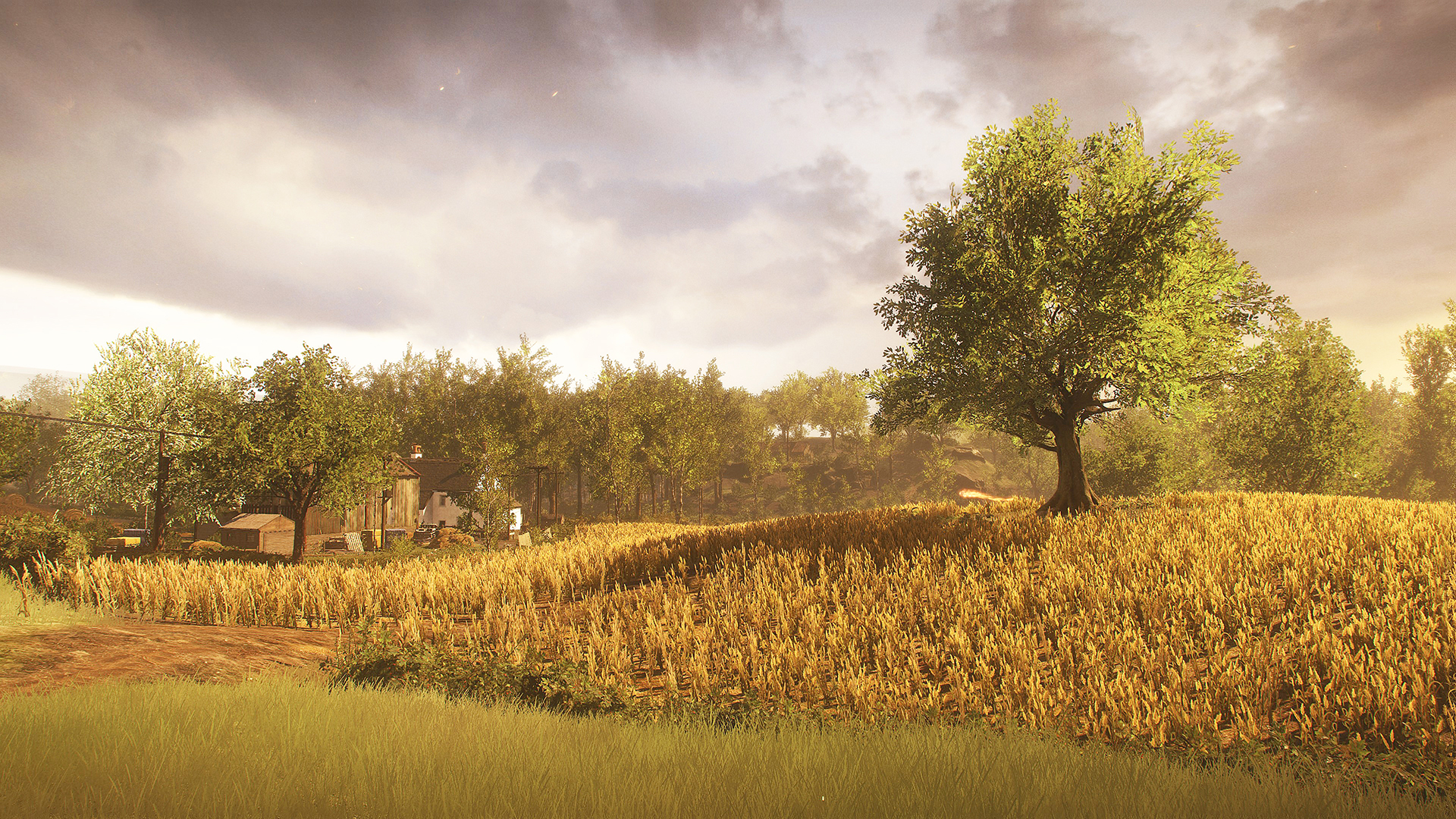
Video games are designed to entertain. They can be fun, challenging, exciting, comforting, and healing. They can transport us to fantastical realms, and virtual interpretations of real-world locations alike with just the click of a button. Against more traditional media, such as TV and books, video games are also uniquely placed to educate and inform by virtue of interactivity – which puts them in a great position to explore sensitive, interpersonal themes and subjects, such as mental health.
Many players use video games as a means of escapism and connection – from Fortnite to FIFA; Animal Crossing to Call of Duty – which can both have huge positive effects on our mental health. The following list, however, includes games that tackle themes associated with mental health head-on – exploring the likes of depression, anxiety, OCD, alcoholism, grief, and many more. We're publishing this article on World Mental Health Day, but, of course, conversations in and around mental health are important every day of the year.
Content warning: The following list discusses topics some readers may find upsetting. If you've been affected by any of the topics explored, please find help and support information at the foot of the article.
Actual Sunlight
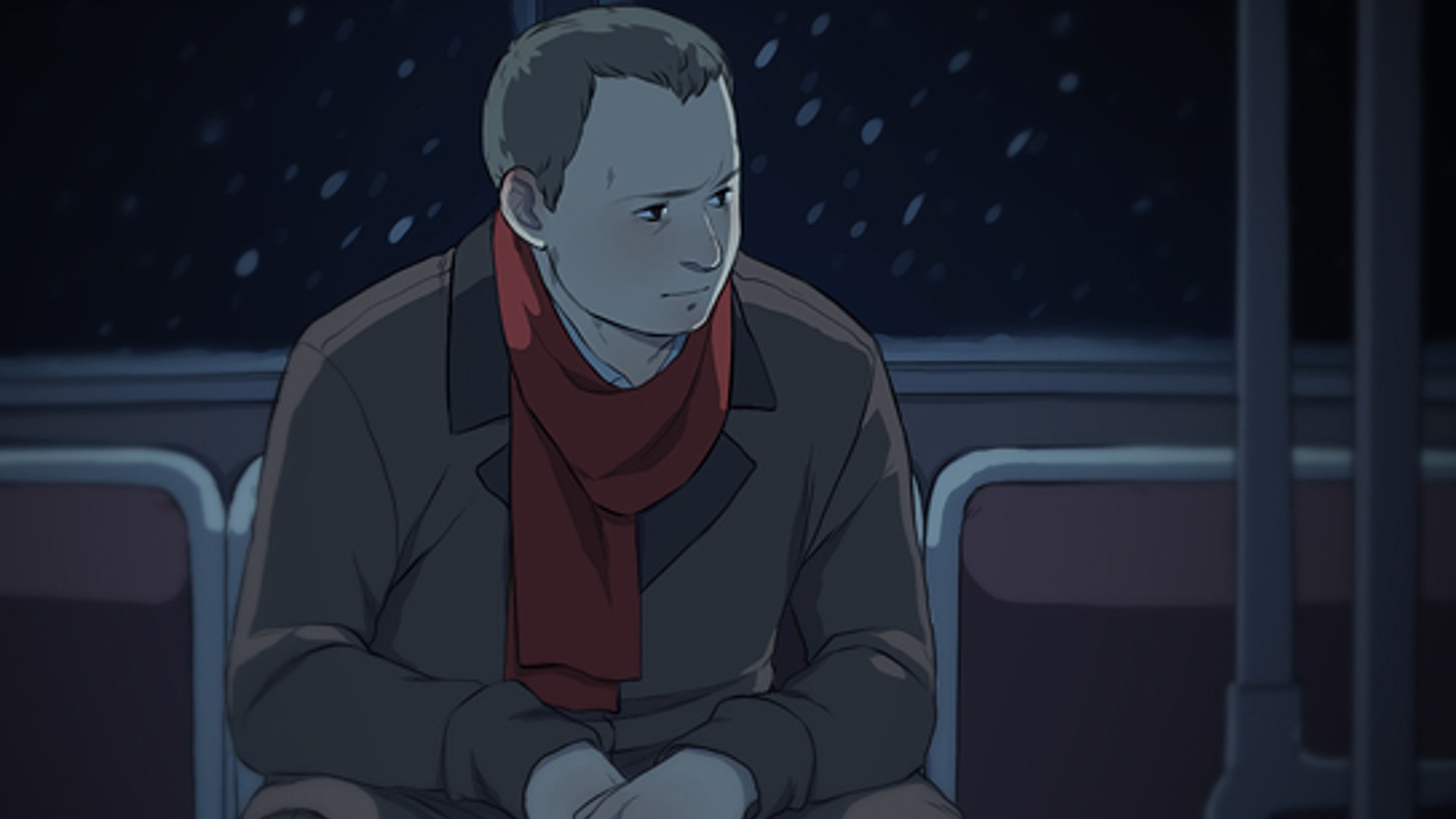
Developer: WZOGI
Year released: 2014
Platform(s): PC, Nintendo Switch, PS Vita, iOS, Android
Actual Sunlight is a narrative game that follows the day-to-day plight of Evan Winter, a 30-something-year-old struggling with the mundanities of the 9-5 grind. It's a bleak, heartbreaking, and emotive tale that sees the protagonist wrestling with depression and anxiety, and feeling trapped within their circumstances. As such, it's not the easiest game to play, but it is both haunting and beautiful. It's also packed with razor-sharp observations of daily life – interactions in the street, at work, and inside (and outside) of our social circles – with flashes of dark humor helping to carry its twisting storyline.
Little Red Lie
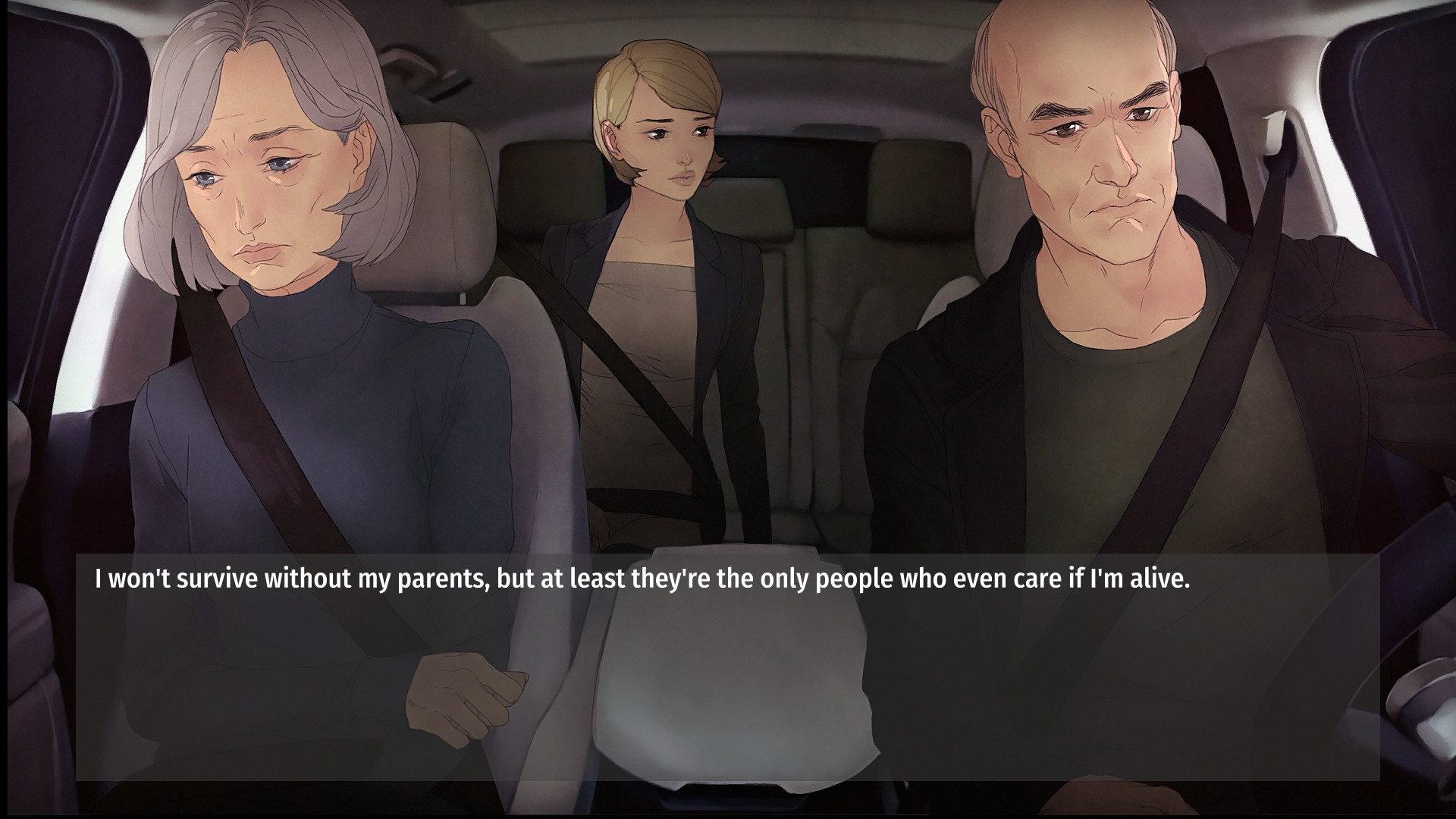
Developer: WZOGI
Year released: 2017
Platform(s): PC, PS4, PS Vita, iOS, Android
From the same developer as Actual Sunlight, Little Red Lie is another emotional rollercoaster story-led game, this time with many more active branching narratives. Weaving pathways through tales tied to family, politics, wealth, social class, and more, the game follows two central characters - the financially compromised Sarah Stone, and the affluent Arthur Fox - through a series of dishonest interactions. Although not its primary theme (compared to its indirect forerunner, Actual Sunlight), how Little Red Lie handles the subject of depression is quite unique – allowing the player to see how Sarah's mindset and behaviors directly impact those around her.
Weekly digests, tales from the communities you love, and more
Papo & Yo
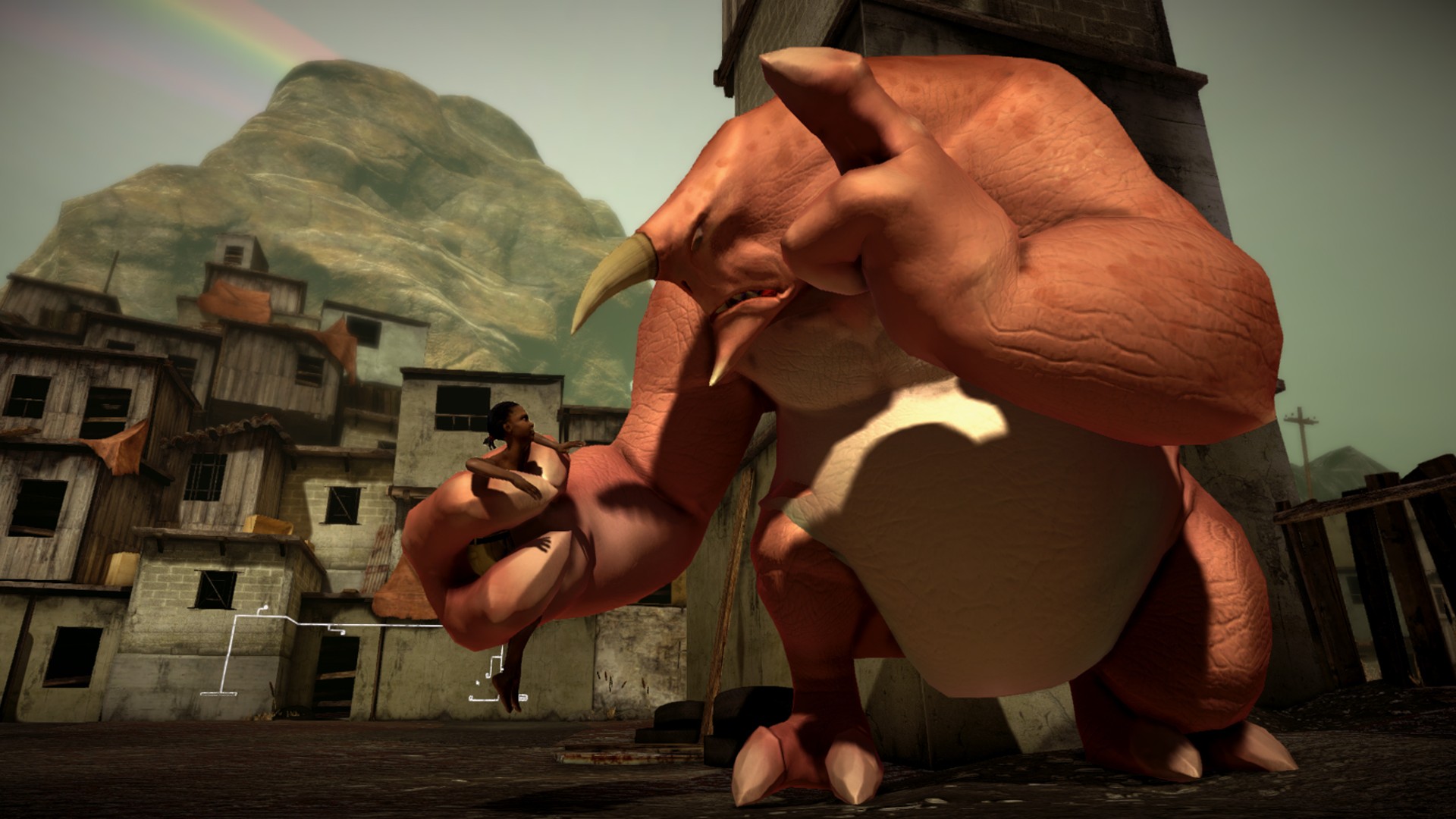
Developer: Minority Media Inc.
Year released: 2012
Platform(s): PC, PS3
On the face of it, Papo & Yo is a simple puzzle game. But beneath its pretty and stylish veneer lies a far darker, more complex tale. Set in a Brazilian favela, the player assumes control of Quico whose best friend, Monster, is a hulking beast with razor-sharp teeth and an unpredictable temperament. As Quico and Monster help one another across the game's labyrinth of platform puzzles, we quickly learn Monster is otherwise friendly, but has a crippling addiction to poisonous frogs. Should Monster go long spells without gobbling a few frogs, they storm around in a violent, frog-induced rage – where no one, including Quico, is safe. As lead developer Vander Caballero has discussed in the past, Monster is a metaphor for his alcoholic father, and thus Papo & Yo is an artistic exploration of alcoholism and the impact this can have on the individual and their family and friends' mental health.
Gris
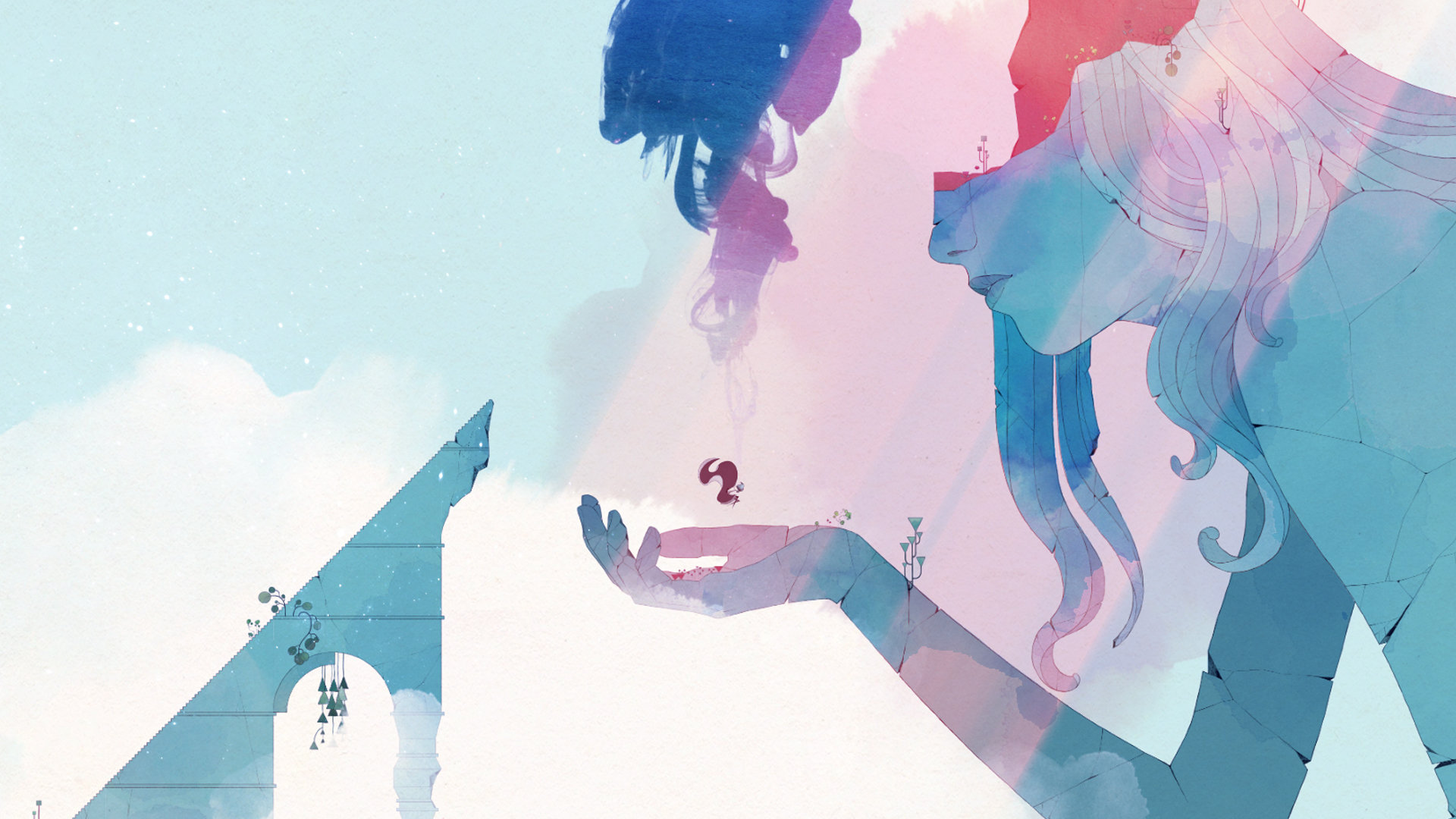
Developer: Nomada Studio
Year released: 2018
Platform(s): PC, Nintendo Switch, PS4, iOS, Android
Gris is a heartfelt game about the eponymous protagonist working through the five stages of grief. Besides being a gorgeous endeavor, Gris is deeper than it looks, with a black amorphous creature stalking the player in many grotesque forms throughout the story. These, you quickly learn in-game, are metaphorical manifestations of how Gris is feeling, and are designed to depict the fluid nature of depression and the ways in which it can consume the mind, body, and soul without warning. In the absence of many gamified features (not least lives and death) Gris is perhaps better described as an experience as opposed to game in the purest sense – but it's definitely one you shouldn't miss.
The Company of Myself
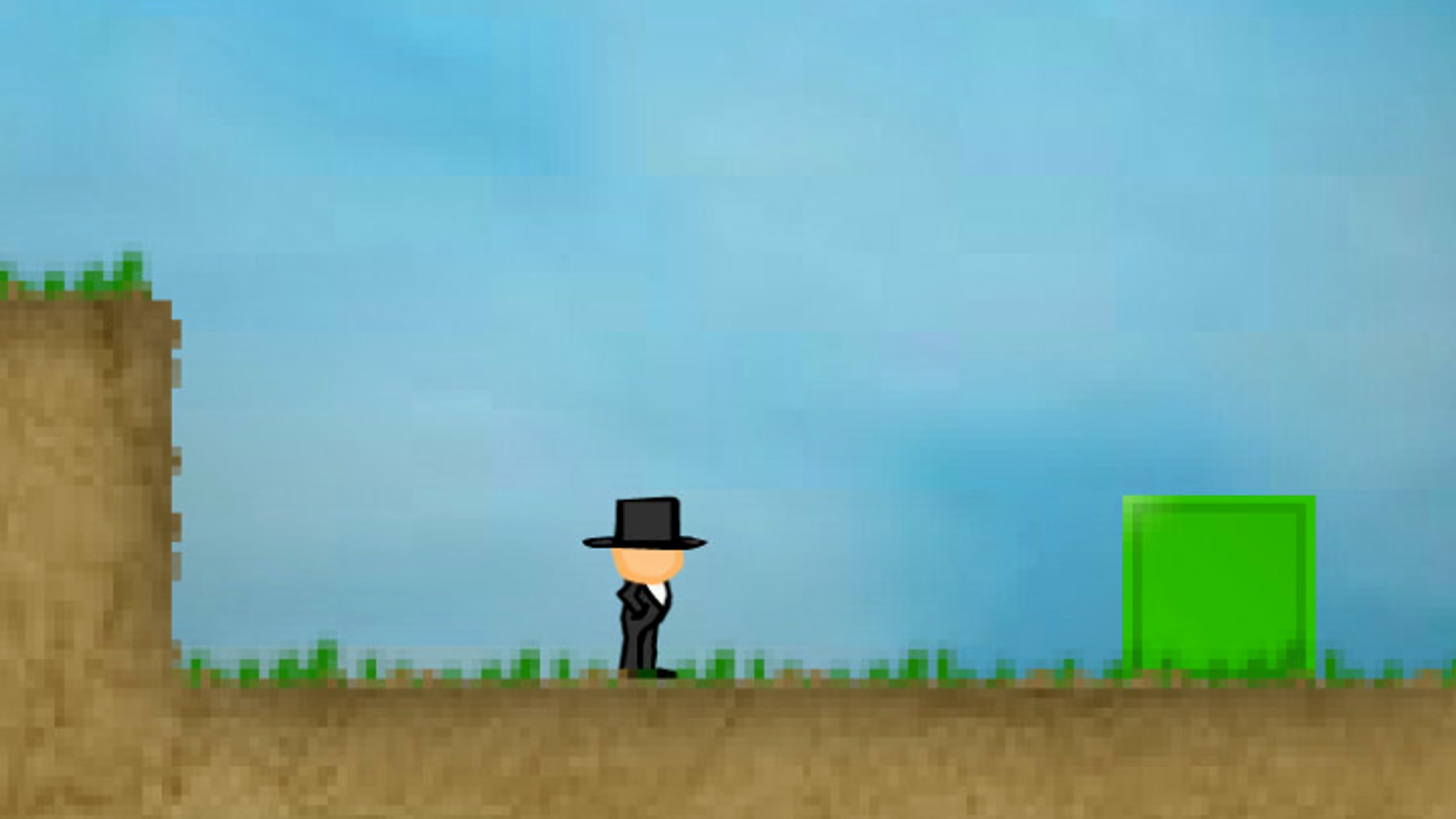
Developer: Eli Piilonen
Year released: 2009
Platform(s): PC
The Company of Myself is a puzzle game that uses character cloning to portray social anxiety. The lead character is someone who prefers to keep themselves to themselves, but who can't always do what they want to do on their own. By allowing the second, cloned character to help them – in situations where the first character allows it – specific obstacles can be overcome. The overarching message of The Company of Myself, then, is that being unsure or being introverted is perfectly normal, but that sometimes coming out of yourself and facing uncertain circumstances is necessary to ensure your well-being. At the same time, The Company of Myself underlines the fact that failure is okay, and being able to face failure and move on is what's really important.
The Town of Light
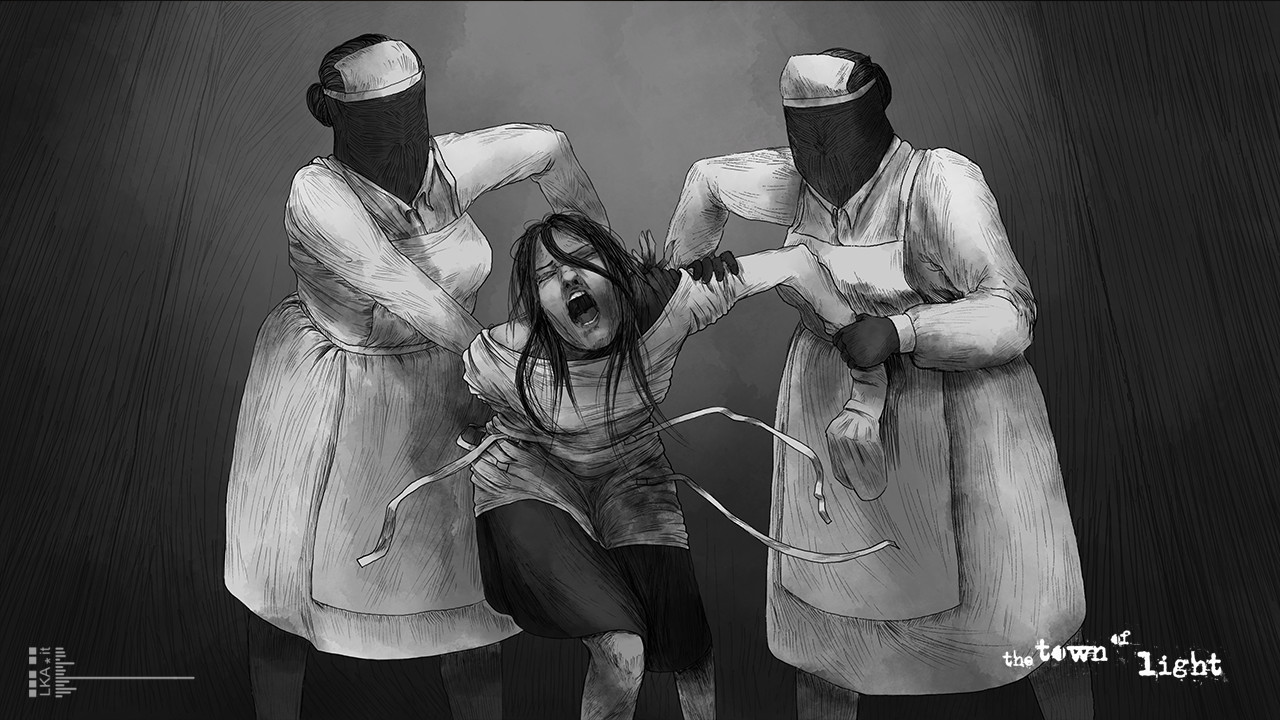
Developer: LKA
Year released: 2016
Platform(s): PC, PS4, Xbox One, Nintendo Switch
Set within the now-closed Volterra mental asylum in Italy, and inspired by real-life events during the first half of the 20th century, The Town of Light tells a fictional and horrifying tale about the mistreatment of a young girl in psychiatric care. Deemed "a danger to herself and others and a cause of public scandal" by the police, protagonist Martha finds herself sentenced to a life of torture at the hands of the people who were supposedly assigned to help her. As such, The Town of Light is a horror adventure game that relies on history and official records, and not jump scares and zombies, to stir its terror – in turn shining a light on some of the deplorable practices that society's most vulnerable were subjected to less than 100 years ago.
Inner Vision
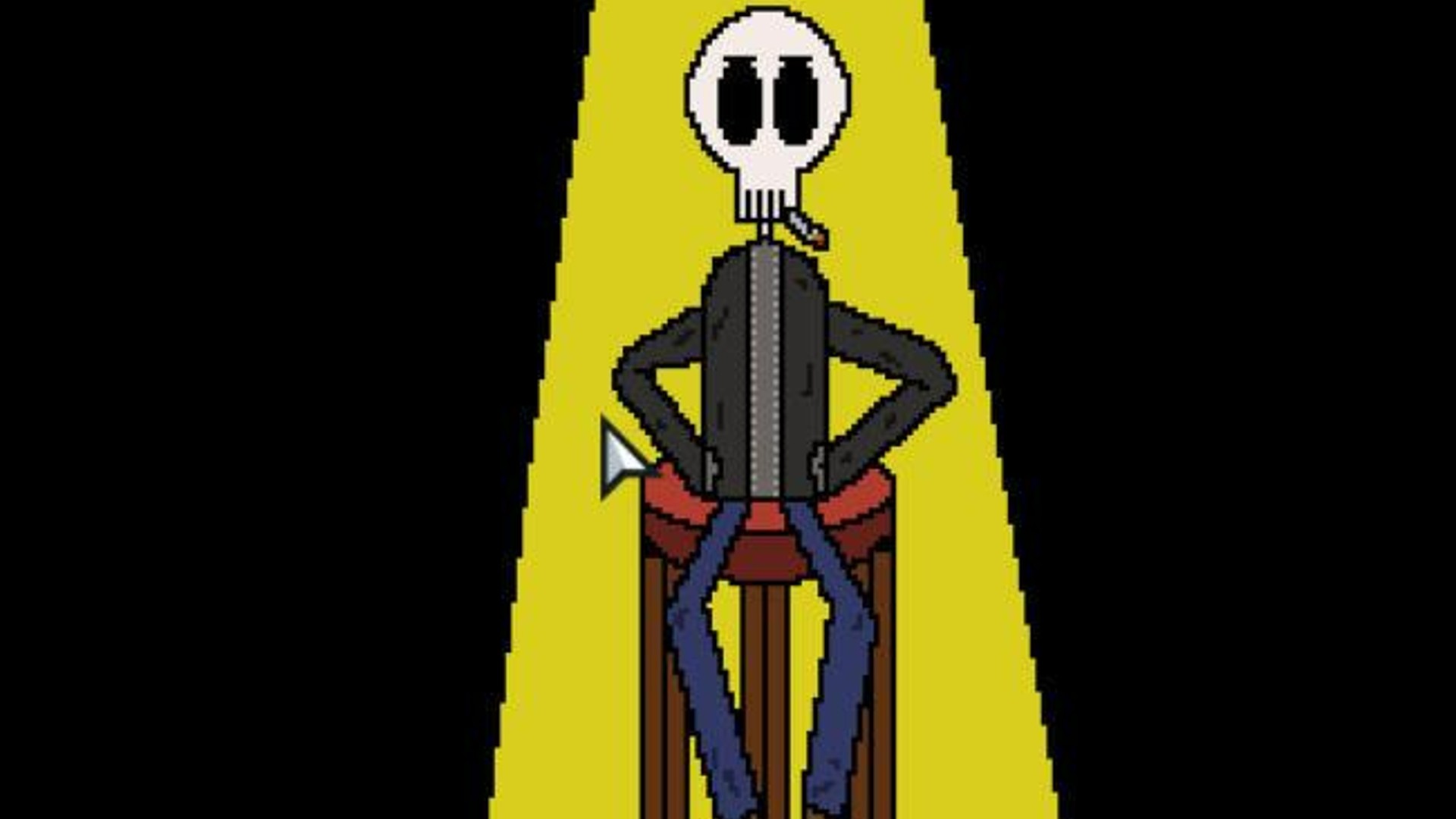
Developer: Sunil Rao
Year released: 2013
Platform: PC
In 2013, Chicago-based developer Sunil Rao created Inner Vision – a simple, experimental, ten-minute-long Flash game about depression and suicide. As the omnipresent protagonist, it's your job to chat to three characters who are struggling with depression, hear their stories, and, hopefully, help them address the problems in their lives. In doing so, your aim is to reverse the grim advice posed by Yama, a smart-talking skeleton who puffs a cigarette and stands as a caricature of depression and the coexisting cynicism that accompanies it. Ultimately, Inner Vision's goal is to demystify the process of seeking help, and encourage those struggling to make that first step towards a better life.
Hellblade: Senua's Sacrifice
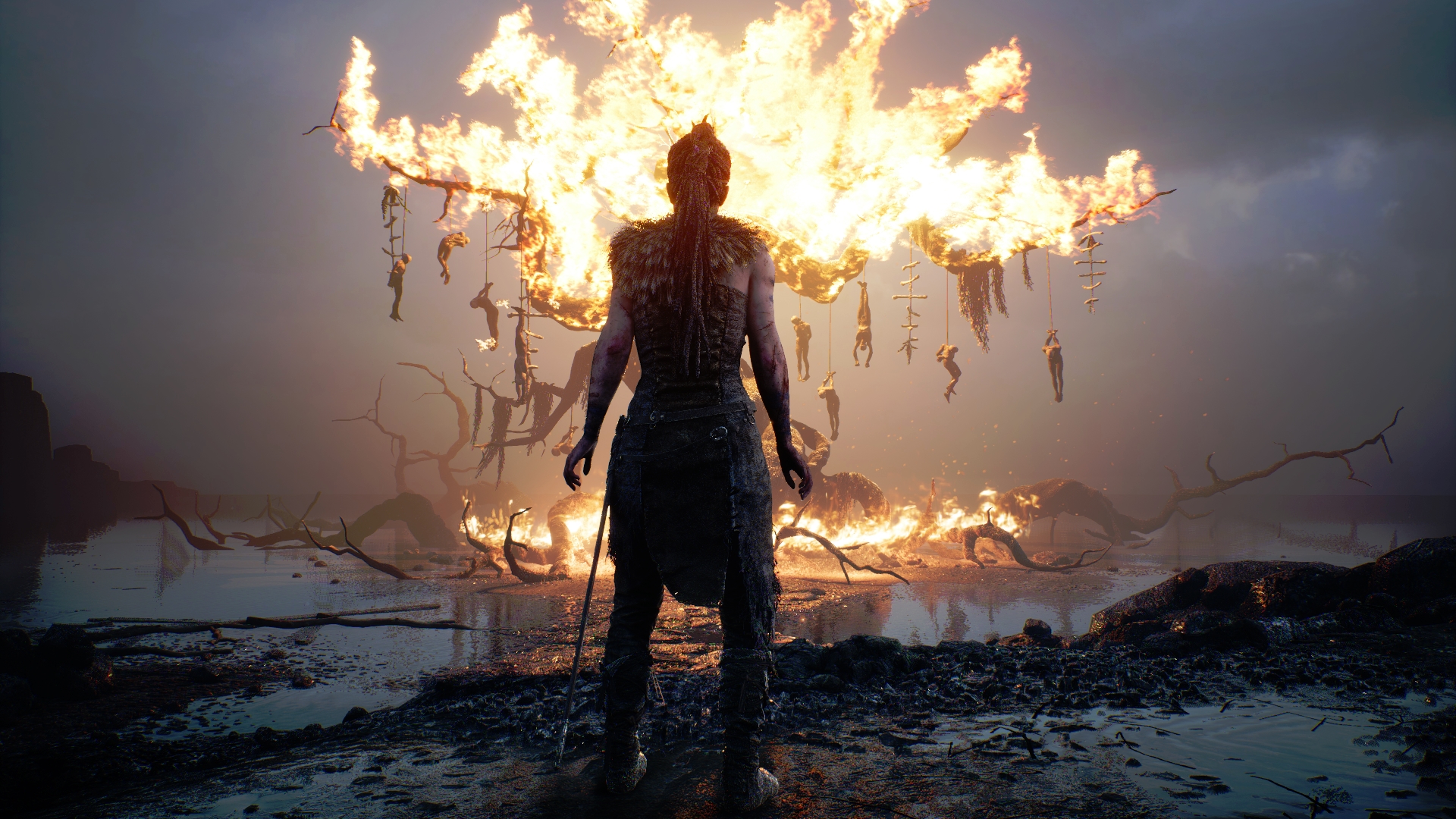
Developer: Ninja Theory
Year released: 2017
Platform(s): Xbox Series X, PC, PS4, Xbox One, Nintendo Switch
Hellblade: Senua's Sacrifice is an action-adventure game inspired by Norse mythology and Celtic culture. Set in a dark fantasy world, much of the game involves fighting hostile warriors and hulking bosses, and solving puzzles to access ancient crypts and various other tombs and keeps. Where mental health comes into play here, however, is the fact that protagonist Senua struggles with psychosis. In order to accurately represent the condition in-game, developer Ninja Theory worked closely with neuroscientists, mental health specialists, and people living with psychosis. It's worth noting that mental health conditions are generally idiosyncratic, and therefore different for everyone, but Ninja Theory has been widely praised for the steps taken to portray psychosis in such an awareness-raising fashion.
Celeste
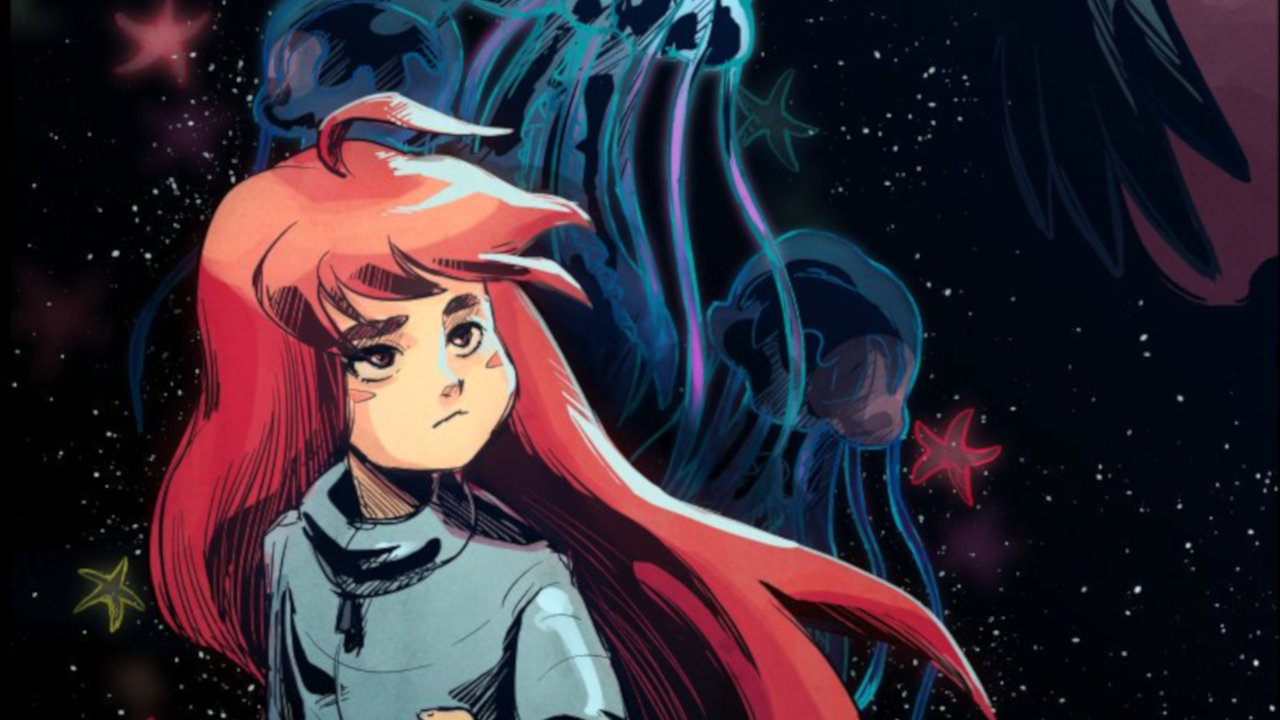
Developer: Maddy Makes Games
Year released: 2018
Platform(s): PC, PS4, Xbox One, Nintendo Switch
Celeste is a fun, well-designed, and intelligent platformer that pits protagonist Madeline against a series of challenges that must be physically and mentally overcome. Early doors, we learn that Madeline suffers from anxiety, and has reached a bit of a crisis point in adulthood, as she wrestles with her identity and the path her life has taken. A number of in-game events help flesh this storyline out, but at its core, Celeste is about traversing a mountain, talking through your problems, and overcoming life's challenges. It's metaphorically and literally spot on, and if you're someone who enjoys the rush of endorphins levied by accomplishment in video games, then, we reckon, Celeste is definitely one for you.
Neverending Nightmares
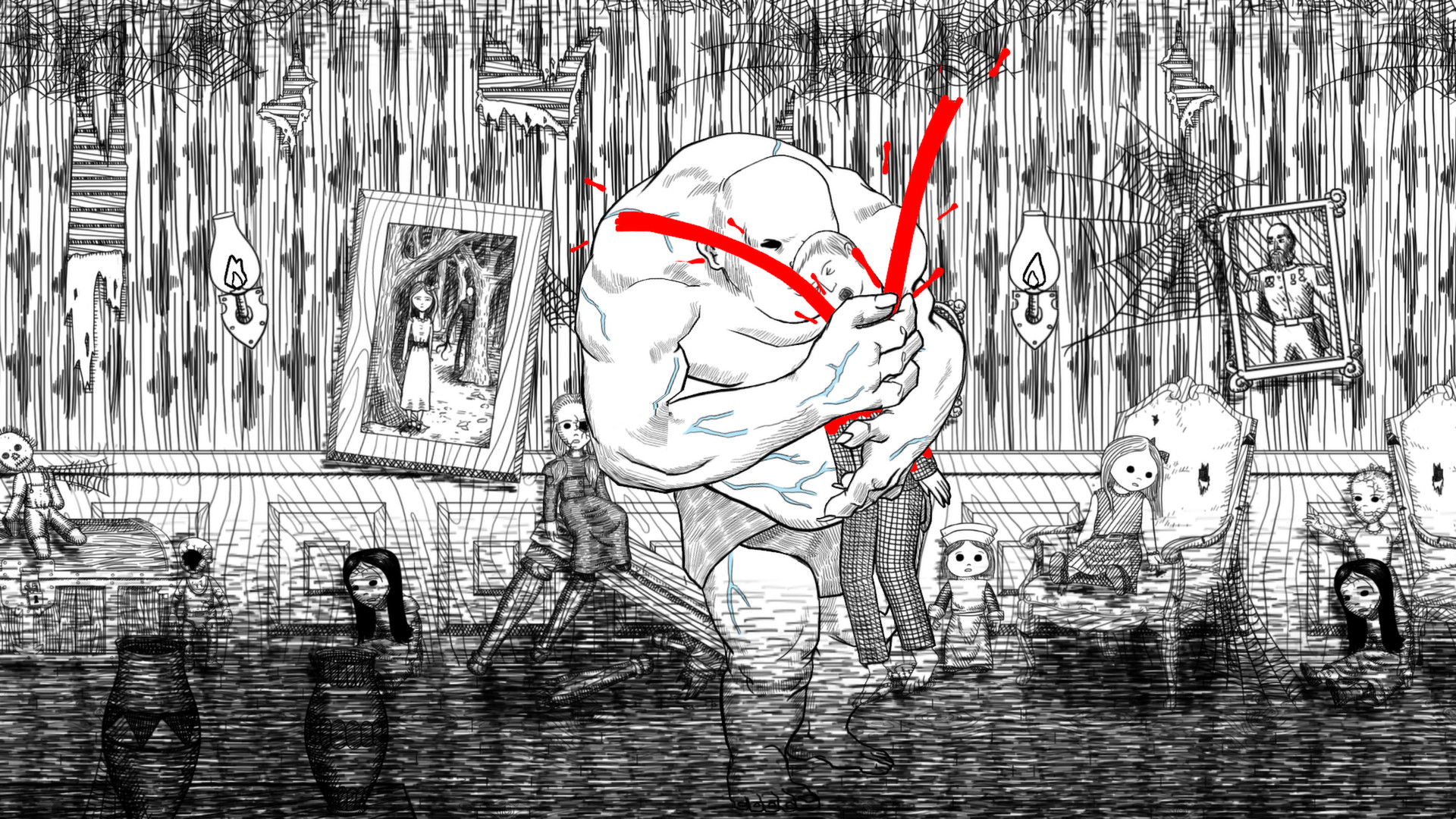
Developer: Infinitap Games
Year released: 2014
Platform(s): PC, PS4, Nintendo Switch, PS Vita, iOS, Android
Neverending Nightmares is a fascinating insight into Obsessive Compulsive Disorder, as viewed through the mind of creator Matt Gilgenbach. In the many interviews he's done since the release of the narrative adventure game back in 2014, Gilgenbach has been very open and honest about his OCD – which manifests in his mind as brutal depictions and imagery of self-harm. Neverending Nightmares runs with this idea by portraying Gilgenbach's experiences in a beautiful monochromatic, illustrative art style that's equal parts intriguing and unsettling.
Bonus: Your favorite games for escapism
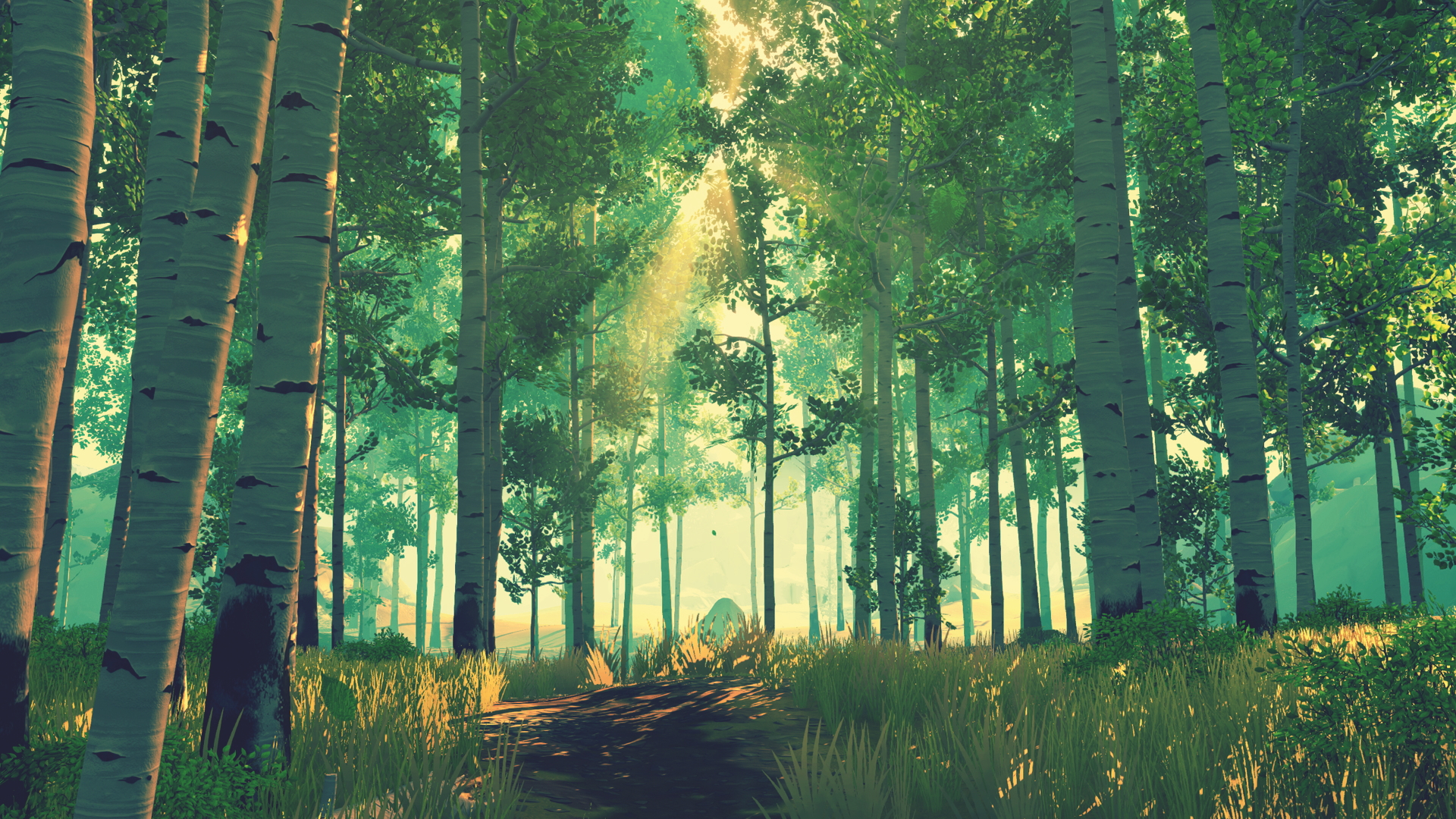
The above list is a rough guide to just some of the games that explore themes of mental health. But, like mental health issues themselves, what you get from playing video games is unique to you. This means you might prefer firing up FIFA after a hard day at work as a means of switching off from reality, or playing Fortnite online with friends after school or college. You might turn to Dark Souls or Elden Ring and revel in the sense of achievement felling those games' toughest bosses provide, or perhaps a few quick rounds of Call of Duty with total strangers is more your cup of tea. Walking simulators can offer peaceful landscapes to explore – such as Firewatch and Everybody's Gone to the Rapture – whereas games like Stardew Valley and Animal Crossing: New Horizons give us gorgeous worlds to relax in, with scores of menial tasks and side quests to keep our minds occupied.
Use the above list to learn more about and engage with mental health issues, but, ultimately, you do you. That's the most important thing. After all, video games are designed to entertain.
If you or anyone you know is affected by the subjects discussed in this article, here are some resources that can help:
Global: The International Association for Suicide Prevention has a list of international agencies at hand to provide immediate support.
UK and Ireland: The Samaritans are open 24 hours a day. Call 116 123 or email jo@samaritans.org.
US: If you are in crisis, please call the National Suicide Prevention Lifeline at 1-800-273-TALK (8255) or contact the Crisis Text Line by texting TALK to 741741.
Australia: Call Lifeline on 13 11 14 or chat online, nightly seven days a week.
Canada: If you are in crisis, call 1-833-456-4566 (4357) or text 45645. For more information about suicide prevention, visit Centre for Suicide Prevention.

Joe Donnelly is a sports editor from Glasgow and former features editor at GamesRadar+. A mental health advocate, Joe has written about video games and mental health for The Guardian, New Statesman, VICE, PC Gamer and many more, and believes the interactive nature of video games makes them uniquely placed to educate and inform. His book Checkpoint considers the complex intersections of video games and mental health, and was shortlisted for Scotland's National Book of the Year for non-fiction in 2021. As familiar with the streets of Los Santos as he is the west of Scotland, Joe can often be found living his best and worst lives in GTA Online and its PC role-playing scene.


